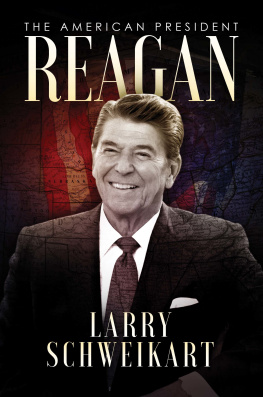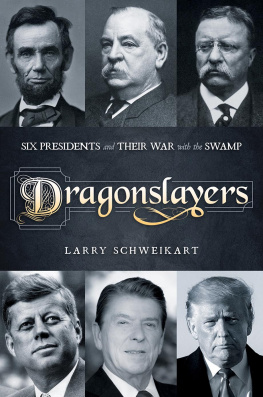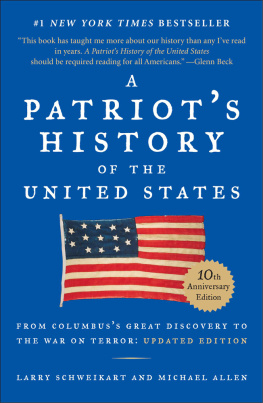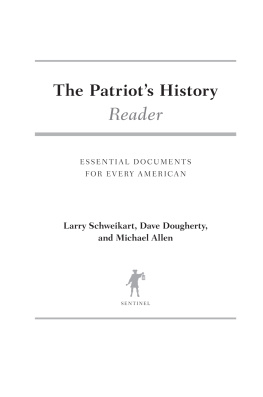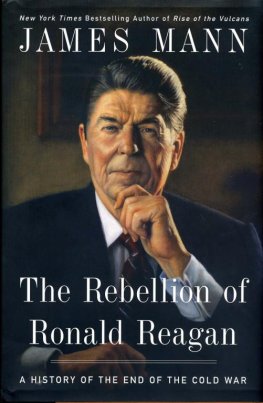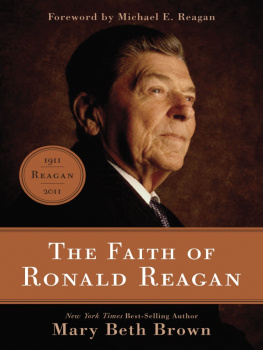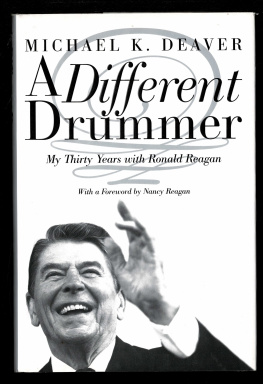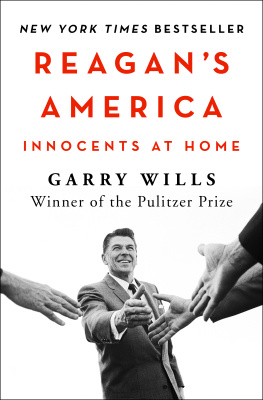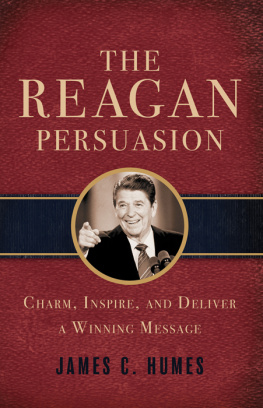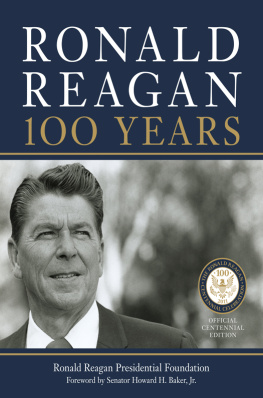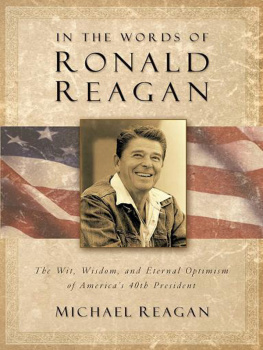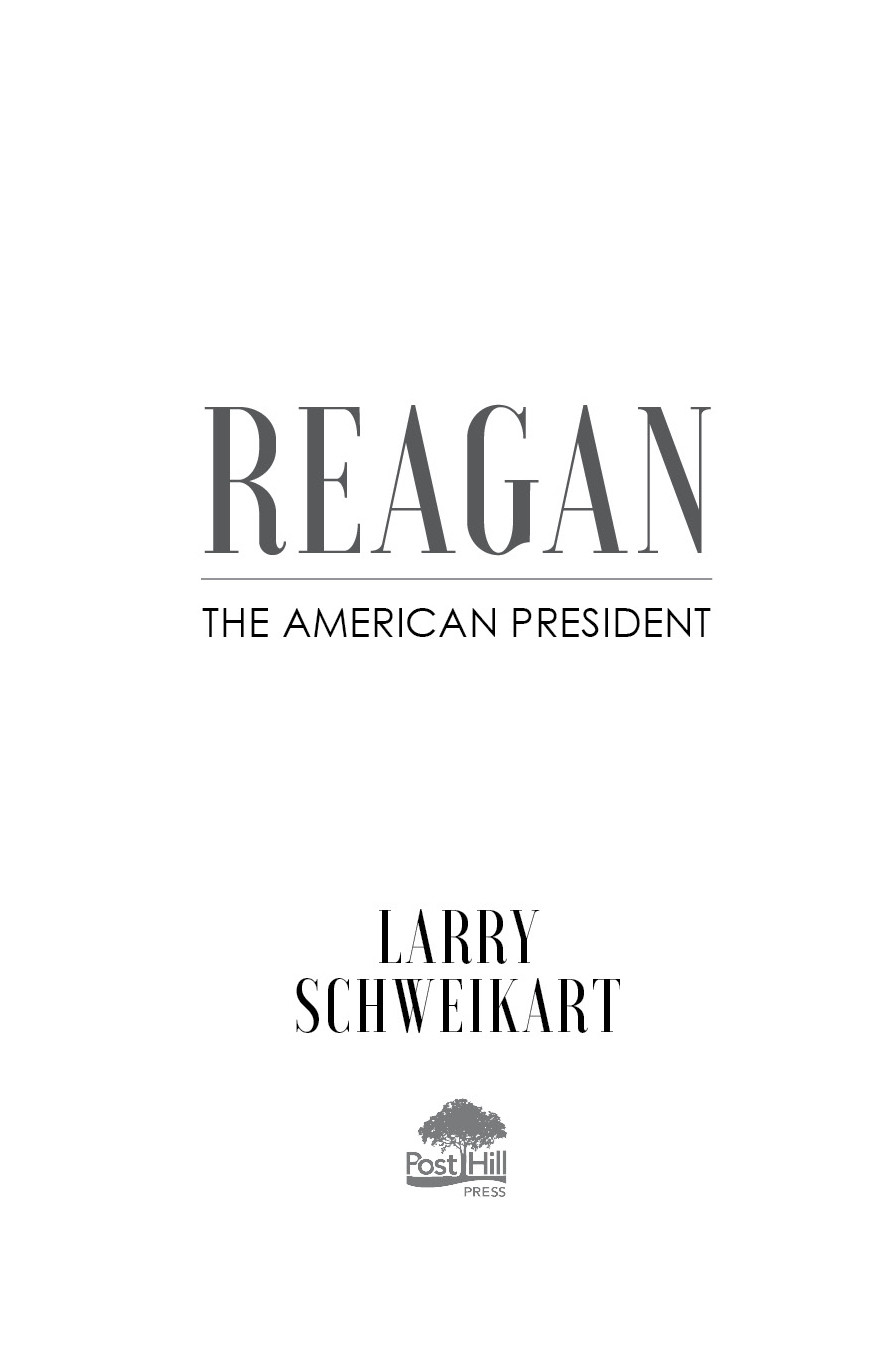A POST HILL PRESS BOOK
Reagan:
The American President
2019 by Larry Schweikart
All Rights Reserved
ISBN: 978-1-64293-082-5
ISBN (eBook): 978-1-64293-083-2
Cover art by Cody Corcoran
Book design and production by Greg Johnson, Textbook Perfect
No part of this book may be reproduced, stored in a retrieval system, or transmitted by any means without the written permission of the author and publisher.

Post Hill Press
New York Nashville
posthillpress.com
Published in the United States of America
Contents
N o angelic choirs sang; no star in the East seduced curious magi to snowy Tampico, Illinois, the night Ronald Wilson Reagan was born, contrary to the mythology of some biographers. His father only differentiated that night from the birth of his other son, Neil, by blurting out that the newborn had a face as red as a Dutchmans, bequeathing a nickname that stuck with Ronald his entire life. Dutchs entrance into this world was not charged by supernatural signs, nor, as he grew up, was his life characterized by the typical trappings of one destined for the list of historys greatest names. His family lacked wealth, connections, or prestige. As a young man he didnt attend Harvard or Yale, and he was not a lawyeroften seen as the defining profession for a politician.
It was, in fact, precisely the absence of these elements that provided young Ronald Reagan with the most normal of lives, and even when his career elevated him to movie star status, his position as the head of a major American labor union once again placed him closer to the experiences of ordinary people than the vast majority of the politicians with whom he soon circulated. By a sequence of life steps, Reagan embodied almost every touchstone of a typical American: he worked at low-level jobs like lifeguard and radio announcer; he went to an unknown school and had marginal grades; he experienced a failed marriage; when forced out of one career path, he reinvented himself in another and then another; he served in the military; he was a born-again Christian when it was common; he was a member of a labor union. These remarkable twists and turns made Reagan unique among all American presidents, for he was the first to ever lead a student strike, the first to be divorced, the first to be in a union, and the first actor-president. And these characteristics combined with a natural talent for remembering lines, for geniality, for genuine Christian charity and concern, for self-deprecation, for personal heroism, and, yes, for some necessary self-promotion to magnify and then reflect his lifetime back on ordinary American voters. Why did Reagan connect? How could he not?
In 2016, when pundits and experts were dumbfounded at the success of a new, very different version of ReaganDonald Trumpthe perceptive among them would admit there were very many similarities, especially when speaking to, and for, the common man. In his speeches, Reagan often referred to Joe America, and in his inaugural address, Trump said to the Republican convention and all ordinary, forgotten Americans, I am your voice. Their backgrounds were hardly identical, but the appeal was very much the same: Trump, the glamorous billionaire; Reagan the glamorous movie star. Critics would claim Trump was brash and reckless, forgetting that Reagan, while using a self-effacing humor as a sword (Well, there you go again!), was often attacked as even more reckless. One biographer claimed Reagan was sleepwalking through history.
Occasionally in American history, an insider with the proper credentials, with wealth, and with all the chips on his side can leap the chasm to the average person. Teddy Roosevelt did it, his cousin Franklin did it, and John Kennedy did it. Far more often, the gap remains, bridged by respect, but seldom love. Ronald Reagan elicited the affection that was seen in the lives of the presidents who were viewed as men of the people: Andrew Jackson; Abraham Lincoln; and Harry Truman. Americas love and respect was on full display upon Reagans death when his viewing produced endless lines, and the procession to his final resting place along California highways saw crowds with signs standing as adoring sentinels, mile after mile; then again in Washington, DC, when the lines of mourners shocked the journalists who thought Reagan incompetent or even dangerous.
Of course, when it comes to the need for a new Reagan biography, the question is Why? Who needs one? Despite some excellent work during Reagans life and after his passing, no biography has yet captured the man and his ideas. Indeed, with once-in-a-lifetime access to the Gipper and his family, British author Edmund Morris so utterly failed to understand Reagan that he concluded he was impenetrable. Existing biographies not only lacked the paper support in some cases (relying heavily on interviews with Reagan staff, friends, and family) but usually failed to grasp Reagans key intellectual secret, which was his holistic view of the world. To the Gipper, there was not domestic policy and foreign policy, nor was there a separation of energy, commerce, civil rights, or defense. It was all part of a tightly woven worldview that demanded a resurgence of American power while at the same time fostering a massive recovery in the American economy. As an example: the 1981 sale of AWACS aircraft to Saudi Arabia was not merely a negotiation to ensure some sort of balanced approach in the Middle East. It was a clear quid pro quo for the Saudis to cut prices and increase oil production as soon as possible. And Reagan viewed that, in turn, as a triple set of policy objectives: lowering prices for Americans and thereby increasing economic productivity; reducing inflation and thereby strengthening American family purchasing power; and driving down the price of Russian oil, which in turn meant depriving the USSR of a major source of hard currency at the most critical time.
One could take almost any policy of Reagans and see a rich tapestry of layers, threading through every department in the US government and, at the same time, many nations. Like the doctor of osteopathy who treats the whole person, Reagan envisioned all his actions as achieving multiple aims simultaneously. This element of Reagans vision also explains why in the case of critical mistakes like the insertion of Marines into Lebanon or his dogged commitment to the Iran Contraseven to the point of misleading himself on the nature of the operationhe was always looking at multiple policy objectives.
Other than perhaps Calvin Coolidge and Franklin D. Roosevelt, no other American president in the twentieth century had such scope to his thinkingbut in Coolidges case its hard to tell where his policies started and his predecessors (Warren G. Hardings) left off. Roosevelt, while overseeing a vast shift in power and resources from the local and state level to the federal government, was by all accounts given to sudden and significant policy swings depending on which advisor had his ear. Historians were subsequently stuck with insisting there were two New Deals to rationalize the shifts in policy. No one ever accused Reagan of needing two Reagan Revolutions! FDR bounced from budget balancer to big spender, from partisan subsidizer-in-chief to ideological redistributionist. Until World War II forced on him a unifying discipline, Roosevelt was, within a general range of leftist politics, all over the map, generally bound by the ignoble partisan objective of institutionalizing the Democratic Party into the dominant political force of the American twentieth century. As historian Burton W. Folsom Jr. would show, political considerations guided virtually every policy enacted under Roosevelt. But there was never a deeper FDR: he never seemed the slightest bit concerned with celestial order or heavenly morality. Reagan was.

